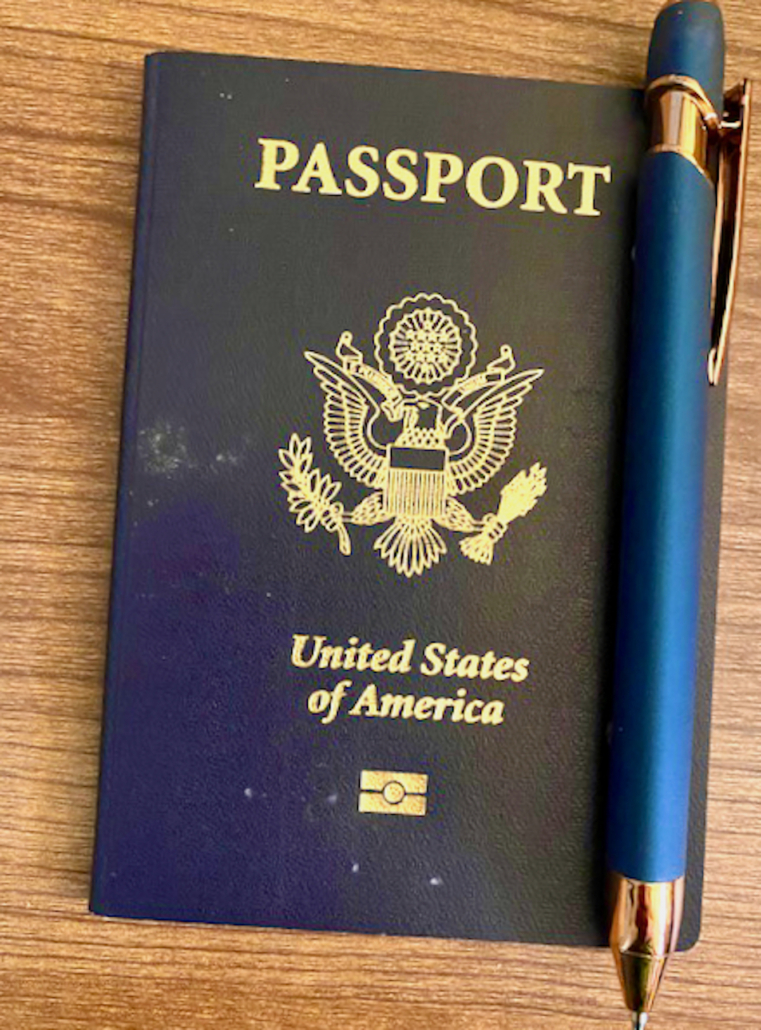Digital Nomad Visas: Location-Independent Living
While many organizations announce return-to-work mandates, another trend is luring people away from the office and into faraway places: digital nomadism. The proliferation of digital nomad visas, which allow foreign workers to stay longer and earn money abroad, is one of the key factors fueling the digital nomad craze.
What is Digital Nomadism?
A sign of the times perhaps, Merriam-Webster added the word “digital nomad” to the dictionary in 2023. Digital nomad is defined as “someone who performs their occupation entirely over the internet while traveling.” Typically, digital nomads use wireless networking to work without a fixed address. Some people choose to work this way indefinitely, setting up shop in one place until another calls to them. Others head out for a few months or a year in a Starlink-enabled RV (or van, boat, bike, bus, or buggy), fueled by entrepreneurship, opportunity, or wanderlust. There are many ways to do it, and working while traveling is tugging at the heartstrings of more and more individuals and families!
The digital nomad lifestyle is growing in popularity, big time. Today there are roughly 35 million digital nomads, 17 million of whom are US citizens. There are nomads of all ages, all backgrounds, all professions. They are gay, straight, married, single, with and without kids. Some live in communities or hubs, others roam independently or as a family. This recent Forbes article describes several popular paths to becoming a digital nomad: negotiating with a current or new employer to be full-time remote, turning a lifestyle of travel into a business, using one’s skills to support or collaborate with other digital nomads, and turning what you love into an income-generating job. Industry analysts predict that the epic growth will continue and by 2030 there will be over one billion digital nomads worldwide.
Many factors explain the rise in digital nomadism. For one, moving through COVID equipped many more people with skills and tools for virtual school and remote work. And many liked it! Some families liked it so much they are choosing to not go back to school and instead learn in a manner where the world is their classroom, an educational approach called worldschooling. Some companies liked it so much they adopted flexible “work anywhere” policies for their employees, further contributing to the growth in digital nomadism.
Secondly, working while traveling is exciting and attractive. There are opportunities to meet interesting people, stay in beautiful and different places, lower one’s cost of living, cut commuting time, cultivate curiosity, and grow in new ways.
Third, according to a recent article in the Harvard Business Review, there’s a culture shift taking place marked by generational disillusionment. The so-called “good life” that older generations experienced feels unattainable or undesirable for many people today. With super competitive workplaces, rising housing costs, political and environmental volatility, and the empty feeling of accumulating stuff, many folks today are driven to look at alternative lifestyles like digital nomadism.
There’s one more factor that can help explain the “work anywhere” trend, and that’s digital nomad visas – a shiny new ticket to location-independent work. Digital nomad visas help overcome two limitations of tourist visas: 1) the limited time allowed in a country; and 2) not being allowed to work legally.
What is a Digital Nomad Visa?
A digital nomad visa is a specialized visa that authorizes foreign individuals (and sometimes a spouse, partner, and dependents) to live and work within the issuing country’s borders. It’s like having temporary residency. The visas may be renewable and typically require the individual applying to show proof of income, health insurance, university degree, or a certain number of years of professional experience, vaccination record, clean criminal record, etc. Many countries seek to attract digital nomads and create relatively favorable terms to do that. They see the long-term presence of foreigners with a steady paycheck as a way to drive economic activity and generate a sustainable flow of income as opposed to tourism dollars, which only flow seasonally. At the same time, the digital nomad is often able to stretch their income by enjoying a relatively lower cost of living. So there is a sort of symbiosis in the arrangement. That’s not to say that digital nomadism is universally appreciated. There’s great concern that the presence of foreigners with money is causing gentrification and that locals are getting priced out of their own towns. This recent article from the Georgetown Public Policy Review takes a close look at the effect of digital nomadism in Latin America.
How Do I Get a Digital Nomad Visa?
In order to start the process of obtaining a digital nomad visa, you have to know where you want to reside and work, then you can look at the visa requirements for that country. Whenever possible, go to the consulate website or an official source to get the most up-to-date information. The space is very dynamic so double-check that what you are reading is current.
If you are unsure of the exact country you want to travel to and just know you want to be somewhere good for digital nomads, you can check sites like Nomad List or Digital Nomad Visa Index, both of which provide useful data to help narrow your selection. They publish information like internet speeds, income requirements, safety, and cost of living, and they provide descriptions and rankings of best places for digital nomads. Lonely Planet also has a Digital Nomad Handbook which provides a good general overview as well as specific information on several hot digital nomad locations. You might also check with one of many digital nomad Facebook groups to get the skinny on different places. Two popular communities are Digital Nomads (167K+ members) and Digital Nomads Hub (60K+ members).
Once you have narrowed down the countries, then dial in your research, gather the required documents, submit your paperwork, brush up on a new language, wait, and cross your fingers. If rejected, there is typically an appeals process.
Here’s some basic information to help you learn more about digital nomad visas:
How Much Does a Digital Nomad Visa Cost?
Application fees run the gamut from $10 to $3000, but typically they are in the $100 to $200 range. And, you may have to pay the same application fee for each family member and when/if you renew the visa.
Do I Have to Pay Taxes if I am a Digital Nomad?
Many countries offer an initial tax-free period that comes with the digital nomad visa. Others make it tax-free the entire period of the visa. Some, however, require digital nomads to pay taxes the whole time you reside in the country. For some people, paying taxes feels like an unfair burden, but it’s important to keep in mind that digital nomads use physical and social infrastructure – like roads, schools, emergency response. In this regard, paying taxes in host countries helps keep them liveable, walkable, and safe.
As for paying taxes back home, even when working abroad, you still have to file federal and state taxes because US tax law is based on citizenship, not residence. Here’s a helpful article on other tax matters and digital nomadism.
How Long Can I Stay in a Country on a Digital Nomad Visa?
It depends. Every country is different. In Iceland, it’s 180 days. In Portugal, it’s one year with an optional renewal every year up to the maximum of 5 years. In the UAE it’s up to one year. In Dominica it’s 1.5 years, and in Thailand a digital nomad can be authorized to stay for up to 10 years, though this Long Term Resident Visa is rather restrictive. So the answer is it depends.
What’s It Like To Be a Digital Nomad?
It’s amazing to be a digital nomad! It’s hard to be a digital nomad! It’s a dream come true! It’s not what I thought! To be sure, digital nomadism is a mixed bag and it’s not for everyone. What is true across the board is this – Successful digital nomads are self-starters, have good time management and budgeting skills, are motivated and self-driven, exercise patience, thrive in the unknown and have a gallon litre liter of good luck. Digital nomads build supportive communities and tend to find each other. Here’s a quick look at the digital nomad lifestyle in three different locations to provide a little taste of what it’s like:
-
A day in the life of a German software engineer, a digital nomad living in New Zealand. Thomas works part-time. His days are full of healthy meals, quiet walks, reading, and relaxing. His work day starts at 7:00 pm New Zealand time when it is 7:00 am in Germany. He typically works until 11:00 pm.
-
A day in the life of a digital nomad content creator in Bangkok. This video is an example of the work of a digital nomad, Sergio, an architect gone webdesigner, now a full-time YouTuber.
-
A day in the life of a business coach in Croatia. Amanda talks about her time in Split, Croatia. She is a full-time traveler and loves to share her experience and helpful information with others.
Do People Need a Digital Nomad Visa to Come to the United States?
Currently, there is no Digital Nomad Visa for the US. But even without that visa, vibrant digital nomad communities are growing across the country in places such as Portland, OR, Kansas City, MO, and Denver, CO. Keep in mind that the digital nomad lifestyle does not require overseas travel. More and more people are moving about within their own country too in pursuit of time freedom and location independence.
What are the Downsides of Being a Digital Nomad?
Digital Nomadism may sound incredibly glamorous, but it may not be good for everyone and it may not be good for every place. Here’s a dose of reality to help keep you grounded and realistic about living that dream.
-
Uncertainty – If you set off to work remotely in a traditional job (i.e., you have an employer), your employer could call you back at any time. That uncertainty may be unsettling. (Pro tip: One way to manage feelings of uncertainty is to have an off ramp or a contingency plan. It might look like a pot of savings, a prearranged place to stay if you return home unexpectedly, or a quarterly check-in with your supervisor to keep the lines of communication open.)
-
Language barrier – Living in a new country presents a wonderful opportunity to learn a new language, but making yourself understood and taking care of important business like finalizing paperwork such as leases and utility agreements while you are still learning the language can be incredibly frustrating.
-
Culture shock and loneliness – It can be exhausting and discomfiting to be the new person on the block over and over again, even where there’s a seemingly welcoming digital nomad community.
-
Not having a professional, cultural or social network – While some digital nomads stay digitally connected to their workgroups and teams back home, the lack of an in-person professional network can add to a feeling of loneliness. The time zone difference can also make it difficult to connect virtually with your professional peers back home. That said, there are digital nomads of every age and ethnicity, and you might find your peeps in forums like Digital Nomads Over 50, Black Digital Nomads, Female Digital Nomads, or by simply doing the things you love to do and saying “ciao” to the person next to you.
-
Time zone management and digital stress – It is common knowledge that travelers need to be prepared to deal with the unexpected. The demands of work double the need to adapt and be flexible. Digital nomads have to be ready to problem-solve and pivot. While some digital nomads plan strategically to be in the same time zone as clients, the onus is typically on them to accommodate employers, colleagues, customers, schedules, holidays, and technology glitches. If traveling with kids and they are doing online school work, bandwidth may be another limiting factor. The privilege of working remotely, and I mean really remotely, comes with some tradeoffs.
-
Homesickness and second-guessing yourself can make problems seem bigger than they would at home. Your usual coping mechanisms may feel remote, too, and finding a new mindset may take awhile.
Fulfilling your dream to become a digital nomad may be the greatest turn in your life and there are many, hundreds, thousands, millions of people out there ready to welcome and support you. With your digital nomad visa, proper planning and preparation, a willingness to deal with trade-offs, and a reasonable contingency plan, you’ve got this, friend, now let’s go!
















